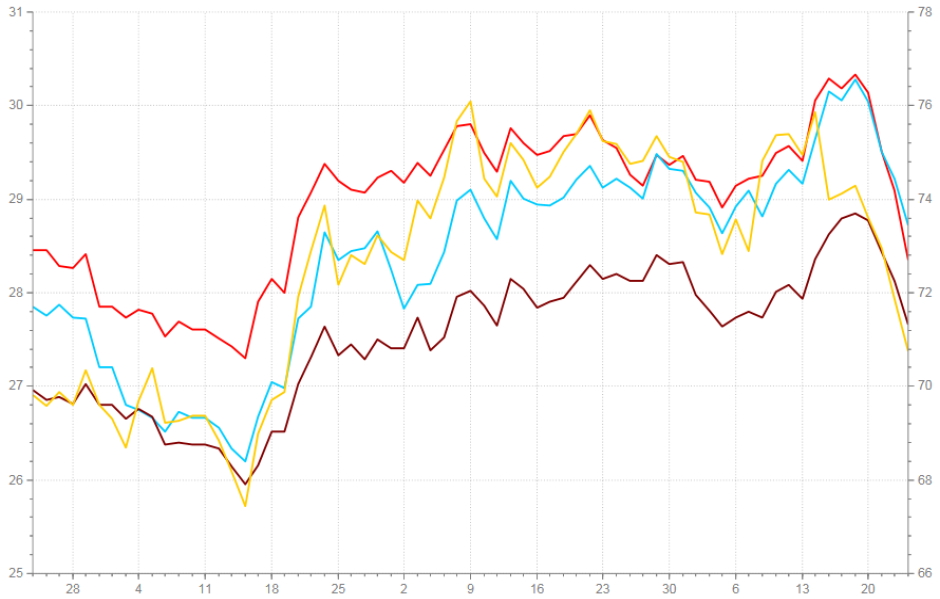Guide to the Bear Market
- Written by News Company

In most years most stocks go up...the stock market is up. Much of the time the stock market is not really interesting, with stock prices fluctuating moderately. Most of the time we are in a bull market, where stocks go higher. In a bear market prices fall. When stock prices are crashing this is an exception that definitely gets the public's attention.
This is especially true today, because millions of clueless investors have their financial futures riding on stocks (stock funds) in 401(k) and IRA plans. Here's your basic investor guide to bear markets of the recent past. How bad have stock prices fallen before, and how does this compare to 2007-2009?
In measuring stock market or average stock performance, we will focus on the DOW JONES INDUSTRIAL AVERAGE (DJIA). This stock indicator is the oldest and still the most popular with investors, often referred to as simply the DOW. It tells you how the big blue-chip stocks are doing, and basically indicates how stocks in general are performing.
Forces That Move Stock PricesHistorically, stocks have returned about 10% a year over the long term. If the Dow drops 5% in a week, the vast majority of investors lose money. When it drops by 20% or more over a period of time we are in a bear market, and virtually all stock investors (except the rare speculator) lose money.
History can give us a sense of perspective, and serve as a basic investor guide. Now let's look at some truly ugly stock markets.
The bear market that started in 1929 was the worst in American history, with the Dow falling 89% at its low in 1932. It took about two decades for stock prices to then return to their previous highs of 1929. A major reason for the market crash: excessive financial leverage. Investors had bid up stock prices with borrowed money.
1973-1974: In less than two years the stock market fell 45%. This bear market was accompanied by rising interest rates and higher inflation.2000-2002: The Dow fell 38%, but growth stocks got hammered (especially hi-tech stocks). The NASDAQ Composite Index fell 78% in less than three years.
A stock market index is computed from the prices of selected stocks and measures a stock market that helps investors calculate market performance. Stock market index NASDAQ-100 is a modified capitalization-weighted index made up of 103 equity securities issued by 100 of the biggest non-financial firms placed on the Nasdaq stock market. US100 mini index is a mini-sized contract that lets traders take advantage of trading an index included in the top stocks.
Stocks that had gone up like a rocket fell to earth like a rock. Investor speculation created excessive stock prices especially in areas related to personal computers, the internet and cell phones.
2007-2009: After rising for about five years, stock prices started falling in the autumn of 2007. A year later the financial crisis acted as a catalyst and the market took a nose dive. In early 2009 stock prices were down over 50%. The world's financial system, and economies across the globe, were in serious trouble.Understanding the Role of Speculators
Once again excessive financial leverage and speculation played a major role. Major financial institutions, other corporations, investors and homeowners all participated in this game. Financial leverage is simply investing with borrowed money. Some major Wall Street firms went to incredulous extremes. Some folks on Main Street did as well, speculating on real estate properties with little or no money down.
To sum it up, the bear market that started in late 2007 is the worst since the Great Depression. The end can not be accurately predicted. Investors generally focus about six months into the future. When, and only when, they see a brighter future they will start buying and send stock prices higher. If the trend continues, a new bull market is born.






















